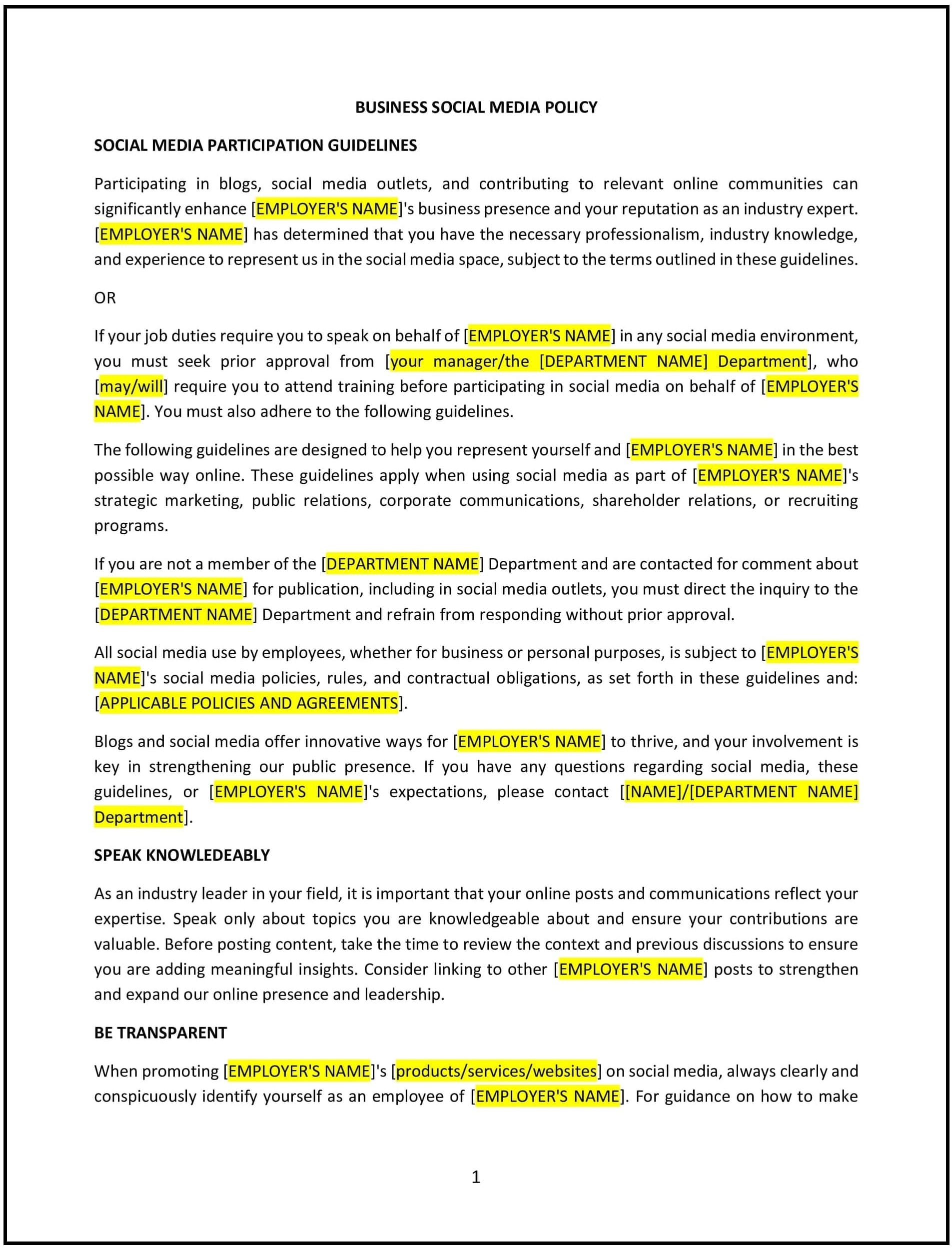Business social media policy (New Jersey): Free template
Got contracts to review? While you're here for policies, let Cobrief make contract review effortless—start your free review now.

Customize this template for free
Business social media (New Jersey)
A business social media policy helps New Jersey businesses set clear guidelines on the use of social media for professional and personal purposes. This policy outlines expectations for employees when representing the company online, engaging with customers, and discussing work-related topics on personal accounts. It also provides guidance on protecting company reputation, handling confidential information, and ensuring respectful communication on social platforms.
By adopting this policy, businesses in New Jersey can promote responsible social media use while protecting their brand and maintaining a positive workplace culture.
How to use this business social media policy (New Jersey)
- Define acceptable social media use: Clarify how employees may use social media in a business context, including posting about work, engaging with customers, or managing company accounts.
- Set guidelines for personal social media activity: Explain how employees should conduct themselves online when referencing the company, industry, or workplace matters.
- Establish confidentiality rules: Prohibit employees from sharing confidential business information, trade secrets, or client data on social media platforms.
- Outline professional communication expectations: Require employees to communicate respectfully and professionally when discussing work-related topics online.
- Address use of company branding: Specify whether employees are allowed to use company logos, trademarks, or branded materials in personal social media posts.
- Provide guidance on social media engagement: Explain how employees should interact with customers, clients, or competitors on public platforms while maintaining professionalism.
- Establish procedures for managing company social media accounts: Assign responsibilities for managing official business accounts, responding to comments, and handling customer feedback appropriately.
- Detail consequences for misuse: Define the actions businesses may take if an employee violates the social media policy, including disciplinary measures for inappropriate posts or data breaches.
- Review and update: Regularly assess the policy to reflect changes in social media trends, company needs, and New Jersey regulations.
Benefits of using this business social media policy (New Jersey)
This policy provides several benefits for New Jersey businesses:
- Protects company reputation: Establishes clear rules to prevent social media activity that could harm the business’s public image.
- Promotes professionalism: Encourages employees to engage on social media responsibly when discussing work-related topics.
- Safeguards confidential information: Reduces the risk of data leaks or improper disclosure of sensitive business information.
- Reduces legal risks: Helps businesses manage potential risks related to social media misuse, defamation, or intellectual property violations.
- Improves employee understanding of expectations: Ensures employees know how to balance professional and personal social media use appropriately.
Tips for using this business social media policy (New Jersey)
- Communicate the policy clearly: Ensure employees understand the expectations for social media use by including the policy in onboarding materials and training sessions.
- Monitor business social media activity: Assign specific employees to manage and oversee company social media accounts to maintain consistent messaging.
- Provide training on responsible social media use: Educate employees on best practices for engaging with customers and colleagues online.
- Encourage transparency: Advise employees to disclose their affiliation with the company when discussing work-related topics on personal social media.
- Review the policy regularly: Update the policy as needed to reflect changes in social media platforms, trends, and New Jersey legal requirements.